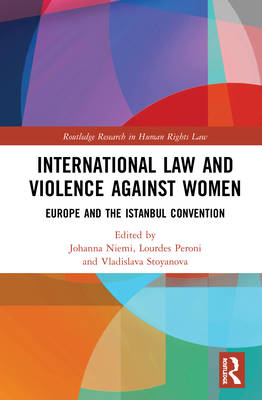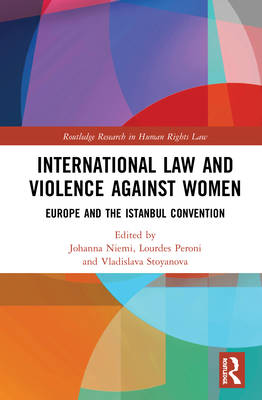
- Retrait gratuit dans votre magasin Club
- 7.000.000 titres dans notre catalogue
- Payer en toute sécurité
- Toujours un magasin près de chez vous
- Retrait gratuit dans votre magasin Club
- 7.000.000 titres dans notre catalogue
- Payer en toute sécurité
- Toujours un magasin près de chez vous
International Law and Violence Against Women
Europe and the Istanbul Convention
Description
This book offers an in-depth and critical analysis of the Istanbul Convention, along with discussions on its impact and implications.
The work highlights the place of the Convention in the landscape of international law and policies on violence against women and equality. The authors argue that the Convention with its emphasis on integrated and comprehensive policies has an important role in promoting equality, but they also note the debates on "genderism" that the Convention has triggered in some member states. The book analyses central concepts of the Convention, including violence, gender and due diligence. It takes up major commitments of the parties to the Convention, including support and services to victims, criminal law provisions and protection of migrant women against violence. The book thus makes a major contribution to the development of national laws, policies and practice.
It provides a valuable guide for policy-makers, students and academics in international human rights law, criminal and social law, social policy, social work and gender studies.
Spécifications
Parties prenantes
- Editeur:
Contenu
- Nombre de pages :
- 300
- Langue:
- Anglais
- Collection :
Caractéristiques
- EAN:
- 9780367257668
- Date de parution :
- 08-03-20
- Format:
- Livre relié
- Format numérique:
- Genaaid
- Dimensions :
- 155 mm x 236 mm
- Poids :
- 589 g






